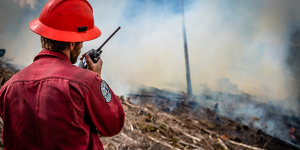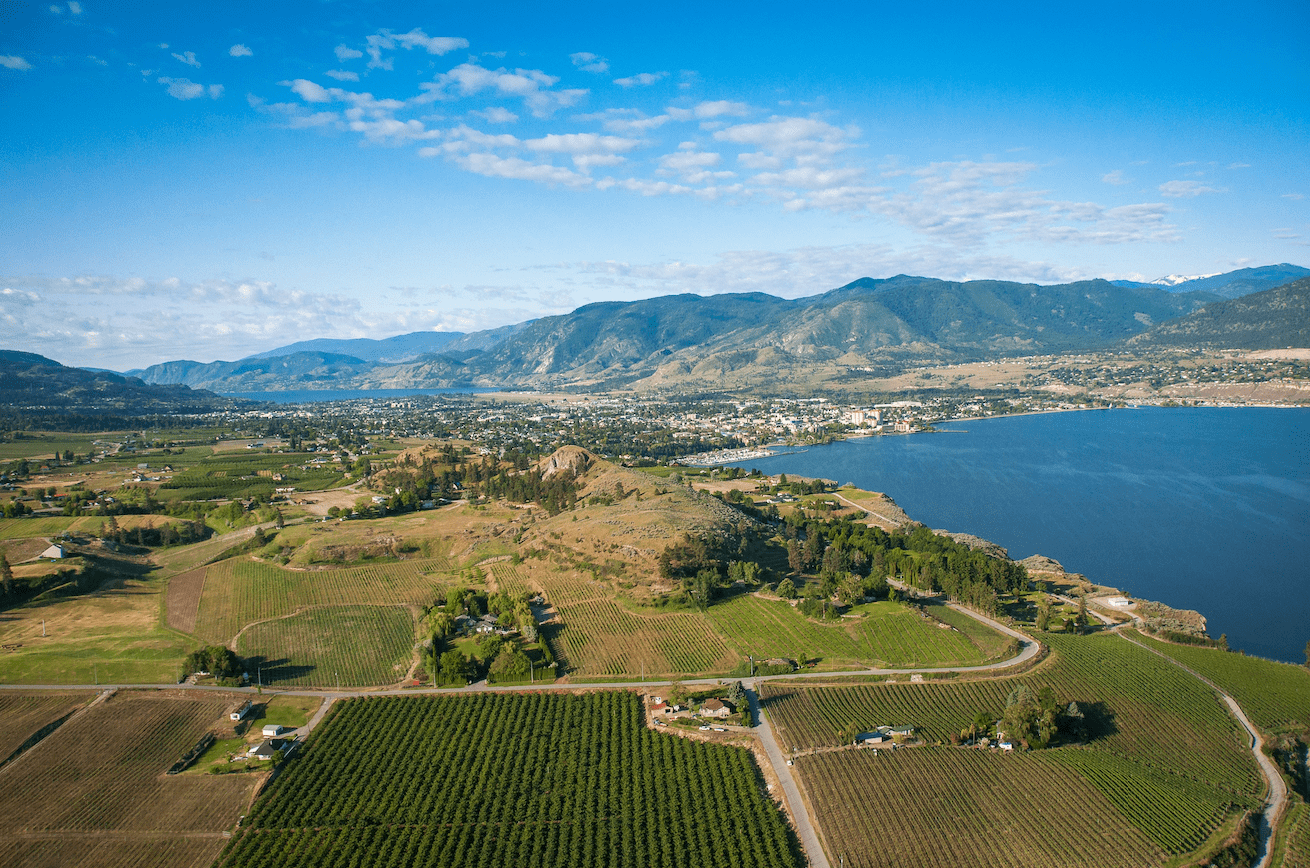
@BC Wildfire Service
KAMLOOPS – Thompson Rivers University (TRU), along with two other Interior post-secondary institutions, has partnered with the City of Kamloops and BC Wildfire Service (BCWS) to develop an enhanced early warning system for extreme weather and resources for wildfire training that will benefit communities throughout the province and beyond.
This work is made possible through $292,500 in funding from Mitacs through its Accelerate program. Mitacs is a national not-for-profit organization that provides backing for the next generation of innovators to conduct critical, unique research and training programs. Over a three-year period, scientists from all three members of the Interior University Research Coalition — TRU, the University of BC Okanagan (UBCO) and the University of Northern BC (UNBC) — will conduct research to implement new innovations, technology, training and education in wildfire science.
This research partnership is a natural fit, as Kamloops is a hub for provincial wildfire response and TRU has recently launched TRU Wildfire, a nucleus for wildfire research, education, training and innovation.
TRU’s Dr. Mike Flannigan, BC Innovation Research Chair in Predictive Services, Emergency Management and Fire Science, is the project’s principal investigator. He is working with Carolyn Ives, also from TRU, and UBCO’s Mathieu Bourbonnais and UNBC’s Ché Elkin. Mitacs funding supports internships for four master’s students and one post-doctoral fellow from the three universities.
“Our expertise in wildland fire science is unparalleled and includes world-renowned researchers Dr. Mike Flannigan, Dr. Jill Harvey and Dr. Lauchlan Fraser taking the lead in wildfire research at TRU. As an institution, we are committed to continuing as a leader in research innovation, education and training, with fire science, community and social resilience, health and well-being, and Indigenous fire stewardship as primary pillars for TRU research,” says TRU Vice-President Research Dr. Shannon Wagner.
This partnership project aims to integrate enhanced training and systems to allow municipalities, wildfire agencies and other stakeholders to adapt to Canada’s rapidly changing fire landscape.
“Fire management is challenging and will be even more challenging with increasing fire intensity, expanding wildland urban interface and the increasing demands on fire management. Enhanced training and an enhanced early warning system are critical to meet these challenges,” says Flannigan.
Last year’s fire season set a record for area burned by wildfires exceeded 18 million hectares across Canada. Reducing the impacts of catastrophic wildfires requires fire management, collaboration and cutting-edge tools.
The City of Kamloops and the BC Wildfire Service work closely in wildfire suppression, preparation and prediction. The research supports the City of Kamloops’ current Community Wildfire Protection Plan and its future Community Wildfire Resilience Plan, addressing key goals and advancing the region’s wildfire preparedness and resilience.
“The wildland urban interface fire risk is very high in the Kamloops area. As a result, a large part of the preparedness and response work done by the City is to address this risk. Tools that can help the City identify, prepare for, and respond to those risks — especially through prevention efforts — will benefit our residents, responders, and organizations. The resources available from our neighbouring communities to support Kamloops in a wildfire event are dependent on availability and not guaranteed. This necessitates strong collaborative relationships with our partnering response agencies, such as BC Wildfire Service,” says Kenneth Uzeloc, director of Protective Services at the City of Kamloops.
“Mitacs, through its Accelerate program, proudly stands with Thompson Rivers University and its partners in their shared commitment to improve wildfire management and emergency preparedness in British Columbia. This collaboration embodies the innovative spirit of our next-generation researchers and offers a strong foundation for our communities in the face of escalating wildfire challenges. Together, we’re dedicated to cultivating cutting-edge solutions, empowering student interns and forging resilient networks that will fortify our region against the ever-present wildfire threat,” says John Hepburn, CEO of Mitacs.
Source: TRU

